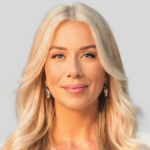With legislative sessions in full swing throughout the nation, almost every state is seeking to raise revenue following the coronavirus-related recession. The Lone Star State is following suit with a potential legislation that would levy taxes on out-of-state internet sales and online marketplace sales.
HB 2410 has been introduced in the Texas House of Representatives. This legislation would apply internet sales tax to Texas residents. According to the bill, the new sales tax would be in accordance with where the transaction is completed. This legislation classifies an internet order as, “an order placed by a purchaser through a website, software application, or other method using the internet using a computer or mobile device that does not belong to the seller.”
Although this bill (and accompanying projected revenue) may seem appealing to lawmakers, marketplace internet sales taxes inherently reduce states’ accountability to taxpayers and ultimately lead to higher costs for consumers.
Historically, states have avoided the legal complexities of implementing internet sales taxes on persons or businesses without a physical presence in the state. However, when the U.S. Supreme Court upheld South Dakota’s internet sales tax law in South Dakota v. Wayfair, a new precedent was set.
The ruling overturned the 25-year-old “physical presence nexus” standard set in Quill Corp. v. North Dakota. Under this new standard, a business may be required to pay sales taxes to a state or local government even if it has no physical location, or nexus, in the taxing jurisdiction.
The Wayfair decision reversed decades of sales tax law, and has encouraged many states to impose new sales taxes on online businesses and consumers. In response to the ruling, the Texas House Committee on Ways & Means will be considering House Bill 2410.
Between burdensome licensing laws, heavy fees, and onerous regulations, small businesses already face substantial barriers. Adding a new internet sales tax would only increase the strain on small businesses.
Moreover, small businesses already face a maze of taxing bodies. According to the Tax Foundation, there are more than 10,800 sales tax jurisdictions in the United States. New sales taxes on internet transactions will make it more difficult for small businesses to remain in operation. This is especially worrisome for small business owners who have managed to stay afloat during the coronavirus pandemic.
Applying sales taxes to internet transactions would produce significant consequences. First, the power state governments wield over retailers outside their borders would dramatically expand. Second, because individual states have very different definitions and rules on sales taxes, confusion, and uncertainty for out-of-state buyers and sellers is inevitable. This would largely affect small business owners using platforms such as Etsy, Amazon, and other popular third-party marketplaces for their businesses.
Supporters of online sales taxes argue these taxes are needed to restore a competitive balance between online and brick-and-mortar retailers. However, the imposition of sales taxes on internet transactions would slow the expansion of e-commerce, one of the key growth sectors of the U.S. economy. According to a study from the Kem C. Gardener Policy Institute at the University of Utah, e-commerce retail sales have grown 15-fold since 2000. From an estimated $23 billion to an estimated $371 billion annually. A trend that was further exacerbated by the pandemic, as people turned to online shopping in droves.
As we begin to see the light at the end of the tunnel for the pandemic, a state with free-market ideals as strong as Texas should not add any cumbersome regulations for small businesses owners. Increasing taxes levied on small business owners always trickles down to consumers creating a lose-lose economic scenario.
Like all taxes, internet sales taxes will ultimately raise costs of good for residents of the Lone Star State, while also posing significant challenges to small business that may be situated throughout the nation. Allowing one state to tax a resident of another state represents an expansion of state taxing powers, which logically end at the state’s borders. Members of the Texas Legislature should consider all of these factors as they deliberate HB 2410.
The following documents examine state internet sales taxes in greater detail.
What Does the Wayfair Decision Really Mean for States, Businesses, and Consumers?
https://taxfoundation.org/what-does-the-wayfair-decision-really-mean-for-states-businesses-and-consumers/
In this “Q&A,” Joseph Bishop-Henchman of the Tax Foundation discusses the Wayfair decision and the potential effects it could have on states.
Understanding an Internet Sales Tax
https://cei.org/content/understanding-internet-sales-tax
Jessica Melugin of the Competitive Enterprise Institute examines the effort by states to expand their internet sales taxes to draw more revenue from taxpayers. Melugin argues in favor of the origin approach of taxation, a sales tax system where the sales tax is determined based on where the product was sold.
Taxes on Remote Sales
https://heartland.org/publications-resources/publications/taxes-on-remote-sales
This election brief from the Kem C. Gardner Policy Institute at the University of Utah examines the complexity of online sales, including the legal context and the growth of online sales, and provides some policy options for consideration.
Research & Commentary: Internet Sales Taxes
https://heartland.org/publications-resources/publications/research–commentary-internet-sales-taxes
This Heartland Institute Research & Commentary on internet sales taxes explains how taxing the internet hurts business and fails to bring in the revenues proponents hope for: “The new tax-remittance burden, however, would fall on online retailers. It would add to their costs and could demolish one of the last remaining redoubts of vibrant economic enterprise—the last thing any state needs during a deep recession.”
An “Original” Solution to Taxation of Online Sales
https://heartland.org/publications-resources/publications/an-original-solution-to-taxation-of-online-sales?source=policybot
Writing for the American Legislative Exchange Council, Andrew Moylan discusses the origin-based sourcing rule for internet sales taxes and explains how it solves many of the problems created by destination sourcing: “Perhaps the most important advantage of origin sourcing, however, would be the infusion of tax competition it could engender. Under such a system, businesses would have an incentive to invest in lower-tax jurisdictions so as to attract price-conscious customers.”
States Already Can Tax Out-of-State Purchases, but Rarely Enforce those Laws
http://www.aei.org/article/economics/fiscal-policy/taxes/states-already-can-tax-out-of-state-purchases-but-rarely-enforce-those-laws/
Michael S. Greve of the American Enterprise Institute considers an overlooked issue in the internet sales tax debate: the often-unenforced use tax. Currently, if a product is purchased from a “remote” seller with no contact with a consumer’s state, the sale is not “tax-free”—the consumer owes a “use tax” equivalent to the local sales tax. Many states do not enforce this tax.
Marketplace Fairness: Leveling the Playing Field for Small Business
https://heartland.org/publications-resources/publications/marketplace-fairness-leveling-the-playing-field-for-small-business?source=policybot
In written testimony before the U.S. Senate Commerce, Science, and Transportation Committee, Kelly Cobb of Americans for Tax Reform discusses remote-state sales tax collection and physical presence in light of the oft proposed Marketplace Fairness Act. “The effects on taxpayers of the Marketplace Fairness Act and similar legislation would be dramatic,” Cobb said. “From a taxpayer perspective, any bill that touches remote sales taxes must preserve the physical presence standard and protect consumers on net from a higher tax burden. Unfortunately, the federal online sales tax bills miss the mark widely on both fronts.”
______
Nothing in this Research & Commentary is intended to influence the passage of legislation, and it does not necessarily represent the views of The Heartland Institute. For further information on this and other topics visit The Heartland Institute’s website, and PolicyBot, Heartland’s free online research database.
The Heartland Institute can send an expert to your state to testify or brief your caucus, host an event in your state, or send you further information on a topic. Please don’t hesitate to contact us if we can be of assistance! If you have any questions or comments, contact Heartland’s government relations team at [email protected] or 312/377-4000.




